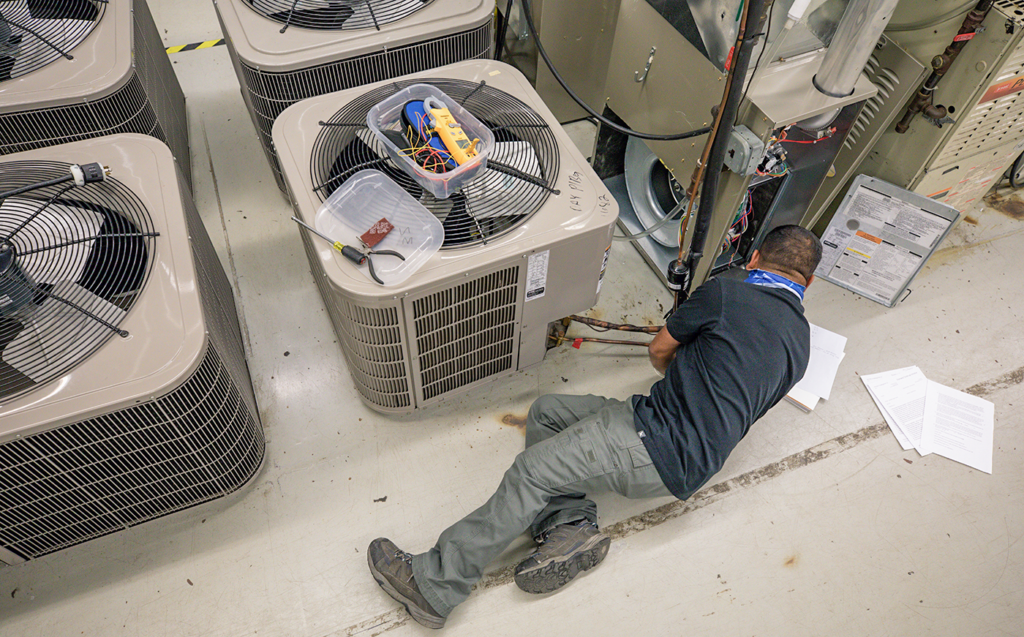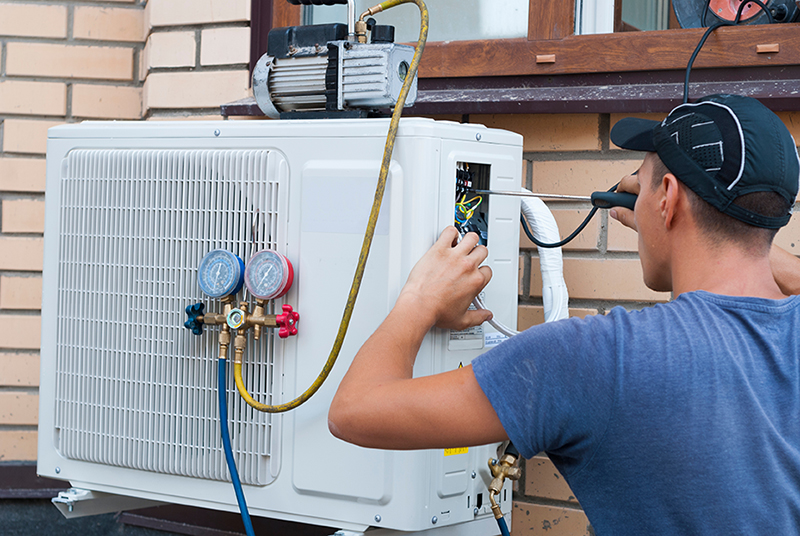Your Overview to Selecting the Right HVAC System for Your Demands
Selecting a proper Cooling and heating system is an important decision that can considerably influence comfort and power performance in your home. Furthermore, comprehending the various types of systems readily available and their energy scores can assist guide your selection.
Comprehending Cooling And Heating System Types
When selecting a HVAC system, it is important to comprehend the numerous kinds available to meet your specific demands. The primary categories of HVAC systems include main air conditioning systems, ductless mini-split systems, warm pumps, and heating system systems.
Air conditioning systems are designed to cool numerous rooms using ductwork to disperse conditioned air. They are optimal for bigger homes calling for regular temperature level control. Ductless mini-split systems, on the various other hand, give versatility and performance, as they enable zoning capabilities, making it possible for private room temperature regulation without the requirement for ductwork.
Warmth pumps operate by transferring warm instead of producing it, making them an energy-efficient option for both cooling and heating. They are particularly reliable in moderate environments. Conversely, heating system systems make use of combustion to produce warm, using either electrical power, oil, or gas. They are favored in cooler areas where home heating needs are considerable.
Each system has unique benefits and considerations, including installment needs, upkeep, and overall expenses. Understanding these types will certainly help property owners make informed choices based on their certain needs, climate, and budget constraints, ultimately ensuring optimum comfort and effectiveness.
Evaluating Power Performance
Energy effectiveness is an important aspect in the selection of a Heating and cooling system, as it directly affects both utility prices and ecological sustainability. The Seasonal Energy Efficiency Ratio (SEER) and the Home Heating Seasonal Performance Element (HSPF) are important signs for air conditioning systems, representing their efficiency over a common air conditioning and home heating season, specifically.
Additionally, seek systems that have earned the power STAR label. This qualification represents that the equipment satisfies strict energy effectiveness standards established by the U.S. Environmental Protection Firm. Consider the system's variable-speed technology, which permits for more reliable operation by changing the outcome to match need, even more enhancing power cost savings.
Furthermore, proper insulation and duct securing can significantly influence the system's overall effectiveness. In recap, choosing an energy-efficient cooling and heating system not just decreases your energy bills however also adds to a more lasting environment, making it a vital consideration in your getting process.
Assessing System Dimension
Selecting the proper size for a heating and cooling system is crucial to making certain optimum performance and effectiveness. A small system may battle to keep wanted temperature levels, resulting in boosted damage, higher energy intake, and diminished convenience. On the other hand, an extra-large system can cause fast cycling, which not just causes inadequacies however likewise influences humidity control and air high quality.
To examine the suitable sizing, it is crucial to carry out a load estimation, which considers variables such as the square footage of the area, insulation degrees, home window sizes, and neighborhood environment problems - hvac. This estimation assists establish the British Thermal Units (BTU) needed for heating and air conditioning. Furthermore, it is important to make up specific requirements, such as the number of residents and the existence of heat-generating devices

Setup Costs and Spending Plan
A detailed understanding of setup expenses is necessary for house owners and businesses taking into consideration a new HVAC system. The total expense of setup can differ commonly based on several variables, including the kind of system, the intricacy of setup, and the location of the property. Usually, setup expenses can vary from $3,000 to $10,000, depending on the system's size and efficiency.
When budgeting for an a/c system, it is crucial to think about not just the preliminary installation prices but likewise any type of extra expenses that may develop, such as ductwork adjustments, electrical upgrades, or licenses. Furthermore, it is a good idea to get numerous quotes from licensed cooling and heating contractors to ensure competitive pricing.
House owners must additionally factor in the prospective long-lasting savings associated with energy-efficient systems. While basics the upfront costs might be greater, energy-efficient models can lead to substantial cost savings on utility bills with time.

Upkeep and Durability Factors To Consider

Appropriate upkeep includes regular examinations, filter substitutes, and cleansing of coils and air ducts (hvac). Neglecting these tasks can result in decreased effectiveness, enhanced energy prices, and premature system failure. House owners ought to also take into consideration the availability of solution contracts, which usually offer scheduled maintenance and top priority solution, ensuring that the system remains in peak condition
Long life varies by system kind; for circumstances, properly maintained central air conditioning systems can last 15 to two decades, while heat pumps might have a life expectancy of 10 to 15 years. Choosing a system with a strong track record for dependability, along with purchasing regular maintenance, can substantially boost the system's resilience. In addition, deciding for higher-efficiency models may lead to long-lasting cost savings on power bills, stabilizing the first financial investment with time.
Conclusion
In conclusion, choosing an ideal HVAC system requires cautious factor to consider of various elements, including system types, power effectiveness, and size. Inevitably, an educated choice will improve his explanation comfort and effectiveness in property environments while taking full advantage of energy savings.
Choosing a proper A/c system is a vital decision that can dramatically affect comfort and energy efficiency in your home.Energy efficiency is a crucial aspect in the selection of an A/c system, as it directly influences both utility prices and ecological sustainability. The Seasonal Power Efficiency Proportion (SEER) and the Heating Seasonal Efficiency Aspect (HSPF) are important signs for air conditioning systems, representing their efficiency over a regular cooling and home heating season, specifically. Choosing a system with a solid track record for integrity, along with spending in normal maintenance, can significantly improve the system's resilience.In conclusion, selecting a proper A/c system requires mindful consideration of numerous variables, including system types, power effectiveness, and size.